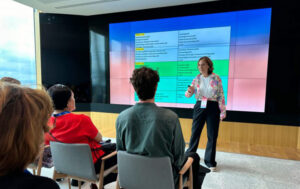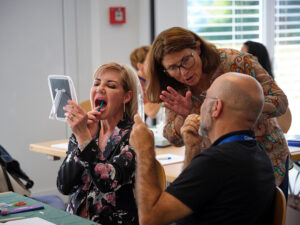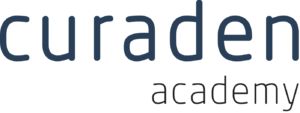It can be easy for patients to think of dental professionals as problem solvers, repairing damaged teeth and treating oral diseases. However, patients should always be encouraged to take a proactive approach with their oral health; enacting changes that prevent or the lower the risk of disease or trauma from happening in the first place.
For dental practitioners, this proactive approach cannot be implemented unless they educate their patients to an optimal level. From demonstrating correct brushing techniques to identifying dietary threats to the teeth and gingivae, there is a host of topics that need to be conveyed, but this education can have several barriers that limit the dental practitioner. Overcoming these barriers is imperative.

Taking the time
Amidst a working day and back-to-back appointments, finding time in an appointment to discuss a patient’s oral hygiene routine can be difficult. Dental practitioners will not want to rush through a check-up as patients may feel dissatisfied and problems in the oral cavity may be overlooked. Being able to explain effective oral hygiene techniques and other preventative measures in a concise, simple way is therefore vital. This means the patient can be checked thoroughly, information and advice are given, and a backlog of appointments isn’t building up from spending too long.
Co-operation and communication
Communication is a cornerstone for all healthcare providers. Being able to diagnose and solve problems relies in part on the patient describing their symptoms and on the dental practitioner describing the recommended plan of action. To discuss oral hygiene routines in a friendly and supportive way, consider employing the following communication techniques:
Open-ended questions
With open-ended questions, dental professionals can make their patients feel comfortable enough to answer honestly. For instance, a direct question such as ‘when did you last flossed?’ carries a bluntness that may be intimidating; patients may feel like lying to avoid embarrassment. Instead, a question like ‘on a scale of 1-10, how confident are you with flossing?’ is broader, giving the patient time to consider their answer. Giving ‘1’ as an option also shows that the dental professional will expect any level, empowering the patient to answer truthfully. Other suggestions include ‘tell me your thoughts on x’ and ‘how would you like to improve your teeth?’
Open-ended questions should always give the practitioner a greater insight into the patient’s life and promote conversation that leads to change.
Affirmation
When patients detail their oral hygiene routine, affirmation is vital for empowerment. Patients do not want to be told if they are doing something incorrectly. Even if a patient admits that they only clean interdentally once a week, practitioners should agree that it’s a good start, rather than lamenting the six days where it isn’t completed. To increase compliancy, positive support should always be given to any oral hygiene practice and this can further encourage the patient to be more consistent with their routine.
Reflective listening
Reflective listening is the practice of letting the patient talk, giving them undivided attention, and then paraphrasing what they have said to indicate that they have been understood. Listening is an essential part of the patient-practitioner relationship, with inadequate communication increasing the risk of dental malpractice claims.[i]
Summarise
Practitioners should always summarise what the patient has said and what happens in each appointment. This reinforces the exchange and ensures that everything is equally understood by both parties. For the patient, this means they can walk out of the practice and better remember the details on their oral health. A follow-up email can also help with this.
A top training programme
Practitioners must also have the skills and resources themselves to educate patients – even though they may understand the oral cavity, how many dental practitioners can effectively teach correct brushing techniques to their patients?

For a comprehensive understanding on the best ways to educate patients, sign up for the iTOP Beginner seminar from Curaden. The iTOP programme focuses on individually trained oral prophylaxis, giving dental professionals the opportunity to improve the way they teach oral hygiene techniques. Those who take on the subsequent seminar levels – Advanced, Recall, Educator – can benefit from the Touch To Teach workshop, where practical skills are put to the test to master oral hygiene. Complete the iTOP programme and guide your patients to a healthier future today.
Don’t let time, communication and skills be barriers to enhancing patient care – by showing each patient that they care, dental practitioners can empower them to be proactive with their oral health, preventing the risk of disease and keeping their smiles bright.

To arrange a Practice Educational Meeting with your Curaden Development Manager please email us on sales@curaden.co.uk
For more information, please visit www.curaprox.co.uk and www.curaden.co.uk

Andrew Turner: Head of Marketing Curaden UK
[i] Ho, J.C.Y., Chai, H.H., Lo, E.C.M., Huang, M.Z. and Chu, C.H. (2024). Strategies for Effective Dentist-Patient Communication: A Literature Review. Patient Preference and Adherence, [online] 18(18), pp.1385–1394. doi:https://doi.org/10.2147/PPA.S465221.
















